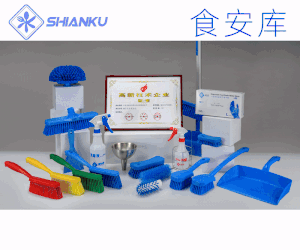食品伙伴網(wǎng)訊 2024年2月26日,歐盟食品安全局就一種粘蛋白酶(mucorpepsin)的安全性評價(jià)發(fā)布意見。
據(jù)了解,這種食品酶是由非轉(zhuǎn)基因米黑根毛霉菌株M19-21生產(chǎn)的,旨在用于乳制品加工,以生產(chǎn)奶酪和發(fā)酵乳制品。
經(jīng)過評估,專家小組認(rèn)為,在預(yù)期的使用條件下,不能排除飲食暴露引起過敏反應(yīng)的風(fēng)險(xiǎn),尤其是對芥末蛋白過敏的人。根據(jù)所提供的數(shù)據(jù),評估小組得出結(jié)論,這種食品酶在預(yù)期使用條件下不會引起安全問題。部分原文報(bào)道如下:
The food enzyme mucorpepsin (EC 3.4.23.23) is produced with the non-genetically modified Rhizomucor miehei strain M19-21 by Meito Sangyo Co., Ltd. The enzyme is chemically modified to produce a thermolabile form. The food enzyme was considered free from viable cells of the production organism. It is intended to be used in the processing of dairy products for the production of cheese and fermented dairy products. based on the maximum use levels, dietary exposure was estimated to be up to 0.108 mg TOS/kg body weight (bw) per day in European populations. Genotoxicity tests did not indicate a safety concern. The systemic toxicity was assessed by means of a repeated dose 90-day oral toxicity study in rats. The Panel identified a no observed adverse effect level of 226 mg TOS/kg bw per day, the highest dose tested, which, when compared with the estimated dietary exposure, results in a margin of exposure of at least 2093. A search for the similarity of the amino acid sequence of the food enzyme to known allergens was made and four matches to respiratory allergens and one match to a food allergen (mustard) were found. The Panel considered that the risk of allergic reactions upon dietary exposure to this food enzyme, particularly in individuals sensitised to mustard proteins, cannot be excluded. based on the data provided, the Panel concluded that this food enzyme does not give rise to safety concerns, under the intended conditions of use.
本文由食品伙伴網(wǎng)食品資訊中心編輯,有任何疑問,請聯(lián)系news@foodmate.net。
相關(guān)政策解讀











 地區(qū):
地區(qū):






 魯公網(wǎng)安備 37060202000128號
魯公網(wǎng)安備 37060202000128號



